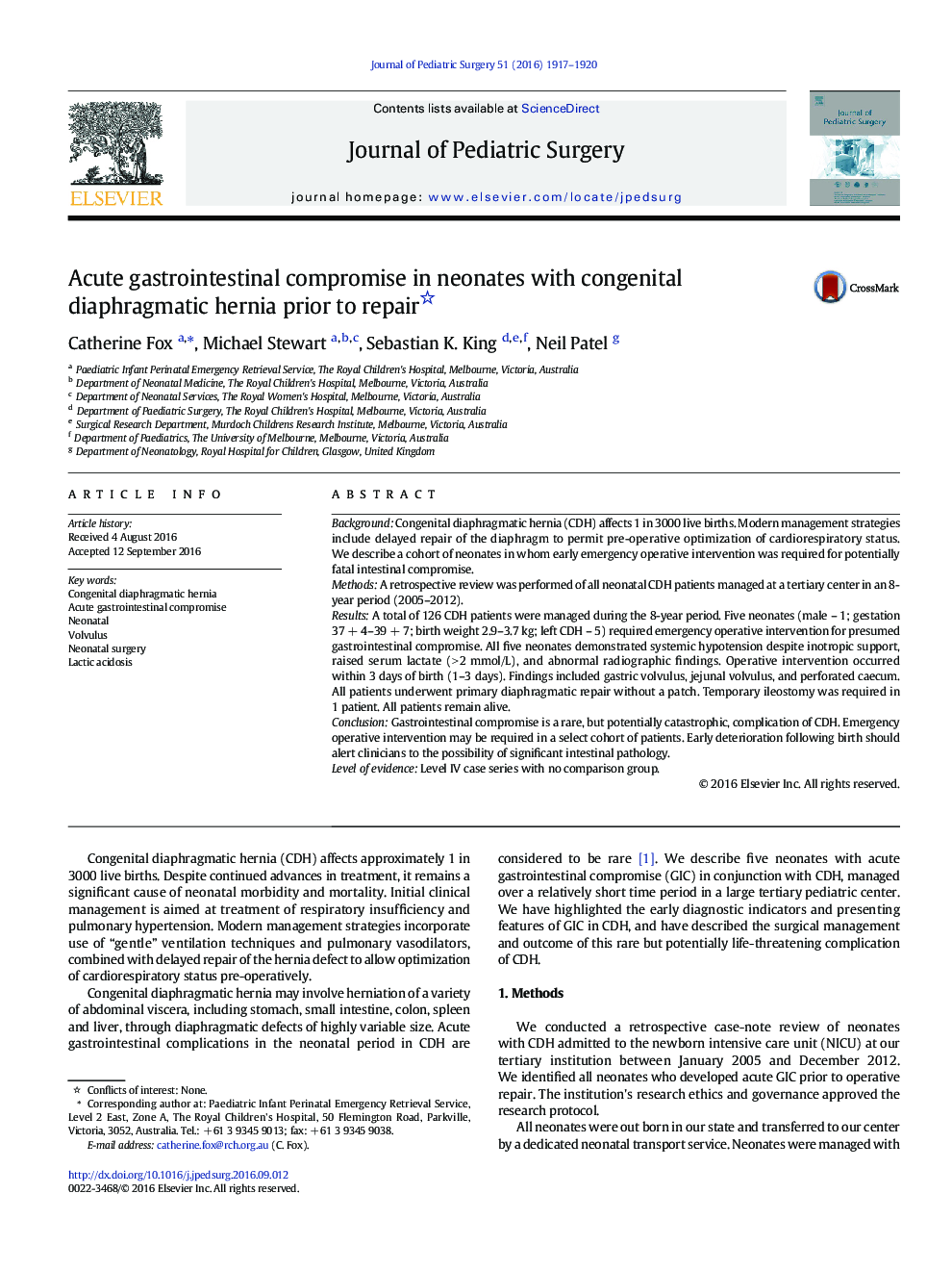| Article ID | Journal | Published Year | Pages | File Type |
|---|---|---|---|---|
| 5718311 | Journal of Pediatric Surgery | 2016 | 4 Pages |
BackgroundCongenital diaphragmatic hernia (CDH) affects 1 in 3000 live births. Modern management strategies include delayed repair of the diaphragm to permit pre-operative optimization of cardiorespiratory status. We describe a cohort of neonates in whom early emergency operative intervention was required for potentially fatal intestinal compromise.MethodsA retrospective review was performed of all neonatal CDH patients managed at a tertiary center in an 8-year period (2005-2012).ResultsA total of 126 CDH patients were managed during the 8-year period. Five neonates (male - 1; gestation 37Â +Â 4-39Â +Â 7; birth weight 2.9-3.7Â kg; left CDH - 5) required emergency operative intervention for presumed gastrointestinal compromise. All five neonates demonstrated systemic hypotension despite inotropic support, raised serum lactate (>Â 2Â mmol/L), and abnormal radiographic findings. Operative intervention occurred within 3Â days of birth (1-3Â days). Findings included gastric volvulus, jejunal volvulus, and perforated caecum. All patients underwent primary diaphragmatic repair without a patch. Temporary ileostomy was required in 1 patient. All patients remain alive.ConclusionGastrointestinal compromise is a rare, but potentially catastrophic, complication of CDH. Emergency operative intervention may be required in a select cohort of patients. Early deterioration following birth should alert clinicians to the possibility of significant intestinal pathology.Level of evidenceLevel IV case series with no comparison group.
